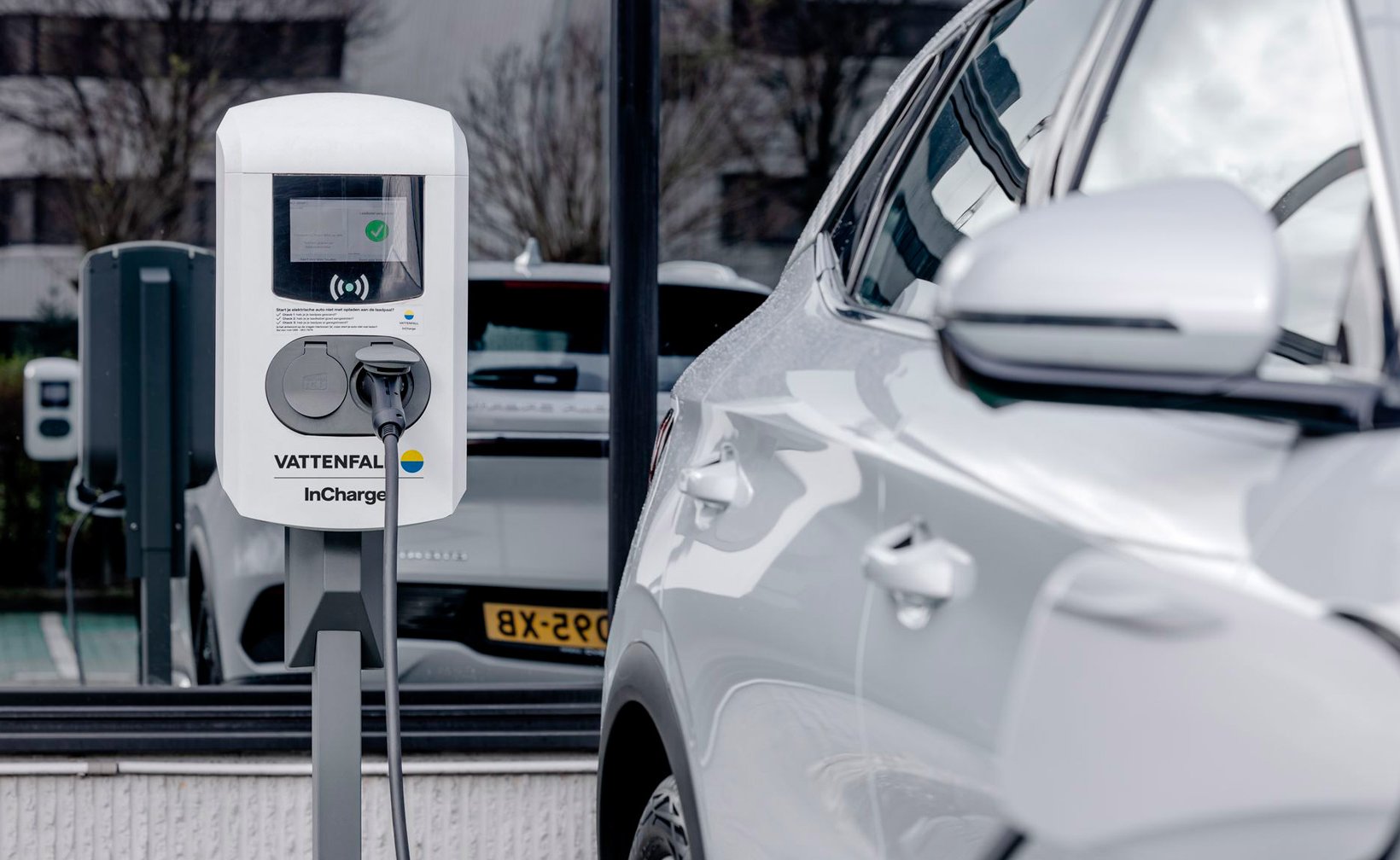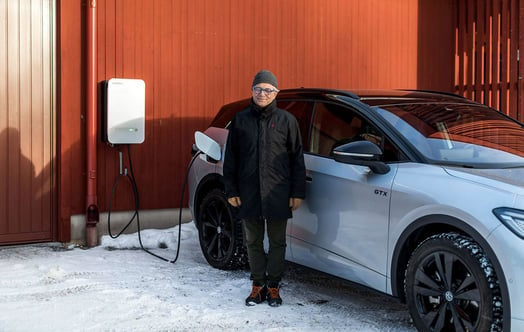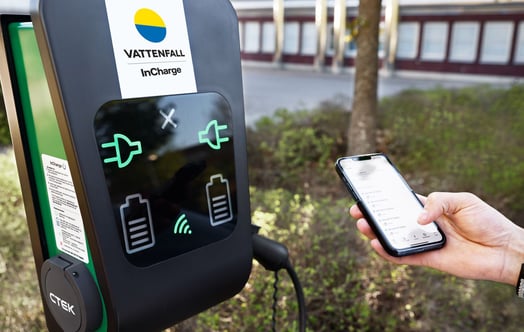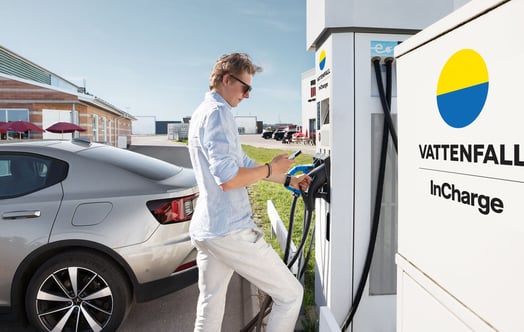
Vattenfall reduces costs and carbon emissions through optimised charging
In an office building belonging to Gewobag in Berlin, Vattenfall uses an intelligent control system to ensure that charging mainly take places at times when plenty of renewable energy is available and electricity exchange prices are low. The effects of this control system on user behaviour and the savings that can be achieved are being investigated as part of a pilot project with netgo GmbH, which has rented 20 parking spaces with charging stations in the building.
For this purpose, Vattenfall has set up an interface to the EEX electricity exchange and developed an algorithm that reduces the charging speed during particularly expensive hours. The electricity price is particularly reasonable when a lot of renewable energy is being fed into the grid. This is precisely where the Smart Charging system comes in: it ensures that vehicles are charged by preference when the proportion of green electricity is particularly high and the price is therefore as low as possible.
“Office properties are ideal for such applications, as vehicles are often parked at charging stations at lunchtime, when solar power generation peaks. At the same time, batteries are normally fully charged by the end of the working day,” explains Franziska Schuth-Krohn, Head of Business Development E-Mobility Germany.
“In Vattenfall we found the right partner, and together and together we’re making an important contribution to greater climate protection with this project,” emphasises Peter Burgfried, authorised officer and Head of Commercial Portfolio Management at Gewobag.
Technologies such as smart charging can reduce not only the cost of procuring electricity, but also the carbon footprint. A study by the National Centre for Charging Infrastructure shows that price-optimised charging can halve operational emissions in CO2 equivalents (see link below).
In this way, the technology actively contributes to the energy transition as it not only optimises the use of renewable energies, but also supports grid stability by reducing peak loads in the electricity grid. “At the same time, electricity costs for users are reduced. This type of optimisation demonstrates how technological innovation and ecological responsibility can go hand in hand to effectively support climate goals,” explains Schuth-Krohn.
About netgo
The netgo group is one of Germany’s leading IT service providers. With over 1,500 employees and its comprehensive service portfolio, the group is the central IT contact for companies and organisations. With expertise throughout the value chain, the netgo group creates innovative IT architectures laying the foundation for digitally driven business models. The netgo group offers cloud services, managed services, IT security concepts, IT infrastructure and customised software solutions, advising and supporting its customers in planning, implementing and operating a forward-looking IT landscape so that they can concentrate fully on their core business.
A key focus of the project is understanding how users respond to intelligent control. Initial findings indicate that interventions in the charging process align well with the demands of everyday work. “Rather than stopping charging during costly periods, it is simply slowed down, resulting in minimal impact on employees’ charging behaviour. For employees who will not be spending a whole working day at the site, there will continue to be non-optimised charging options to ensure that the full charging capacity can be reached in a short time,” explains Swen Wagenknecht, Head of Business Support at netgo.
About Gewobag
With around 74,000 apartments and more than 130,000 tenants, Gewobag is one of the largest property companies in Berlin and nationwide. By 2026, the state-owned housing company aims to expand its portfolio by approximately 10,000 new-build apartments.
Sustainable solutions with an innovative character are also a key focus at Gewobag. “We attach great importance to offering our tenants sustainable and forward-looking options. We have found the right partner for this in Vattenfall”
Link: Recommendations for action by the advisory board at the National Centre for Charging Infrastructure for the implementation of measure 47 of Charging Infrastructure Master Plan II: Bidirektionales Laden diskriminierungsfrei ermöglichen (Enable bidirectional charging without discrimination) – PDF



